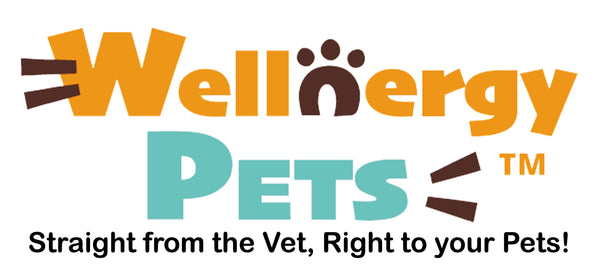It’s Dr. Liao here, back with our second installment of our Wellnergy Pets Breed Wellness Mini-Series!
To review, I created our Breed Wellness Mini-Series to highlight how to best care for certain pet breeds and ailments that they may be prone to developing. In our first installment, we talked about our intelligent, loving, and playful Golden Retrievers, and their predisposition to hip dysplasia and developing arthritis.
Today, we’re going to talk about Tip #2: Watch that Itch!
Golden Retrievers, unfortunately, are one of the many breeds that are prone to developing environmental allergies. First things first:
What are allergies?
Simply put, an allergy is an overreaction of the immune system to an otherwise normally harmless substance that we call an allergen. The development of allergies is dependent on several factors, the main ones come down to genetics and environment. This is why we see many Golden Retrievers develop allergies, and especially ones in certain regions with high prevalence of potential allergens in their environment. Similar to people, Dogs generally develop allergies at a young age, between the ages of 6 months to 5 years old. However, it is still possible to develop allergies at a later age, albeit much less commonly.
What are the signs of allergies?
The most common signs of allergies in pets are associated with extreme itching of the skin. Common areas of itching and irritation include the ears, the paws, the inner thighs and arms, and along the back. Oftentimes, the itching is so extreme, that pets often traumatize their skin, leading to the development of not only hairloss, crusts, flakes, pustules, but even painful, inflamed, irritated, and infected skin (aka Hot Spots).
How to manage my Golden Retriever’s allergies?
Unfortunately, just as in people, there is no cure for allergies in pets. However, there are a number of different ways to manage and care for your pet’s allergies so that they can live a comfortable, happy life, without itchy, painful, and inflamed skin. For severe cases, I often recommend management with immunotherapy injections (cytopoint) every 6-8 weeks, medicated shampoos every 2-4 weeks, and daily skin & coat supplements. If the allergy is mild, however, staying on skin supplements and avoiding the allergens that are causing these reactions may be all that is needed to manage the disease. The goal of treatment for allergies in pets is to control the uncomfortable symptoms, stop secondary infections, and keep your pet happy and healthy, for as long as possible.
When it comes to choosing a supplement to help care for your pet with allergies at home, I personally recommend our Skin & Coat Support supplement here at Wellnergy pets. Skin & Coat Support is rich in Omega 3, 6, and 9 Fatty Acids, Wild Alaskan Salmon oil, DHA, and EPA, powerful ingredients to help relieve itch and inflammation, while also providing vital antioxidant and nourishment support to your pet’s skin and coat. Skin & Coat Support is an essential to keeping your pet’s skin healthy and coat shiny.
I hope this installment of our Breed Wellness Mini-Series here at Wellnergy Pets helps you to better understand and care for your Golden Retriever’s potential skin issues at home!
You can learn more about allergies in pets in our blog post here: https://www.wellnergypets.com/blogs/news/does-my-pet-have-allergies-and-pet-allergy-faq
Thanks again for subscribing! We’ll talk to you in the next installment of our Wellnergy Pets Breed Wellness Mini-Series!
Dr. Zonram Liao

